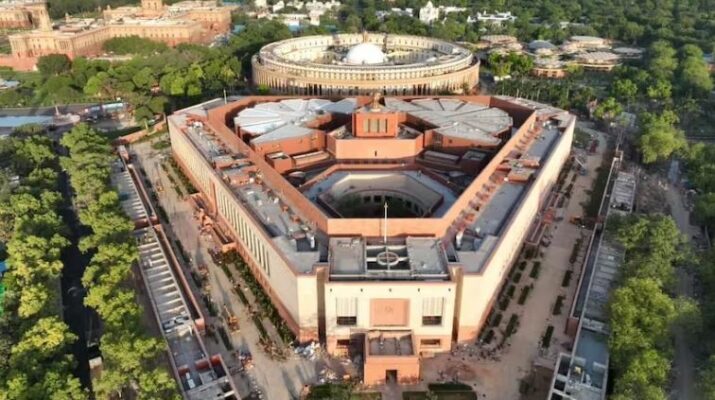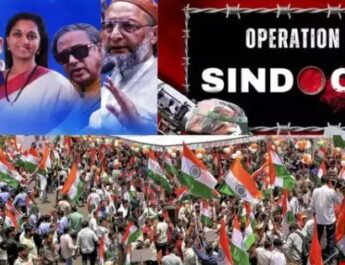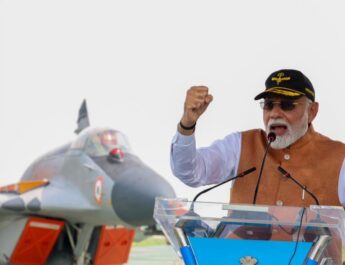New Delhi: Shah Bano and Shayara Bano, whose legal struggles resulted in significant court rulings for the rights of Muslim women, were referenced in parliament today as the BJP responded to the Opposition’s criticisms regarding the Waqf Amendment Bill, which seeks to modify regulations governing Muslim charitable properties. In defense of the Bill, veteran BJP leader Ravi Shankar Prasad criticized the Congress government led by Rajiv Gandhi for enacting legislation that effectively overturned the Shah Bano ruling. He also accused the UPA government of procrastinating in addressing the triple talaq issue. Mr. Prasad noted that the Congress party has not regained its electoral strength since it “yielded” to conservative factions following the Shah Bano decision.
The Shah Bano Judgment
Shah Bano Begum from Indore was divorced by her husband, Mohd Ahmad Khan, in 1978. Following her divorce, she sought maintenance from him. Her husband contended that, as a Muslim, he was only required to provide maintenance during the ‘iddat’ period—approximately three months post-divorce—and not thereafter. The central issue was whether Shah Bano, as a Muslim woman, could invoke Section 125 of the Code of Criminal Procedure, which mandates that a man with adequate means must support his wife who is unable to sustain herself. In 1985, the Supreme Court ruled in favor of Shah Bano, affirming that a woman who cannot support herself is entitled to seek relief under Section 125 of the CrPC. The court observed that “there is no conflict between the provisions of section 125 and those of the Muslim Personal Law regarding the husband’s duty to provide maintenance for a divorced wife who is unable to maintain herself.”
The Response of the Rajiv Gandhi Administration
Following the assassination of Prime Minister Indira Gandhi, the Congress party achieved a historic victory in the 1984 Lok Sabha elections, securing 404 seats—the largest number ever won in a general election. Rajiv Gandhi had been in office for a year when the Shah Bano judgment was issued. Reports indicate that some members of the Congress party cautioned Rajiv Gandhi that the Supreme Court’s decision could have negative political repercussions for the party, as it might be perceived by Muslims as an infringement on their personal laws.
In response, the government enacted the Muslim Women (Protection of Rights on Divorce) Act, which effectively overturned the Supreme Court’s ruling. This legislation transferred the responsibility of providing maintenance to the family of a divorced woman, stipulating that the husband is only required to pay during the iddat period, which lasts approximately three months post-divorce. Opponents of the Congress party have frequently cited this case to criticize the party for what they term “votebank politics.”
The Shayara Bano Case
Shayara Bano and Rizwan Ahmed were married in 2002 in Uttar Pradesh and had two children, a son and a daughter. In 2015, Rizwan Ahmed divorced Shayara Bano using talaq-e-biddat, or triple talaq—a method that allows a husband to divorce his wife by repeating the word talaq three times without her consent. Shayara Bano argued that this practice infringes upon a woman’s fundamental rights.
In 2017, a five-judge bench of the Supreme Court ruled against the practice of triple talaq by a 3-2 majority. The majority opinion stated that this practice is not a fundamental aspect of Islam and characterized it as “manifestly arbitrary,” allowing a Muslim man to dissolve the marriage capriciously and without any effort to reconcile. The court determined that this practice violates the fundamental right to equality before the law as outlined in Article 14 of the Constitution and instructed the government to legislate a framework for regulating divorce among Muslims. In 2019, the Narendra Modi government brought the Muslim Women (Protection of Rights on Marriage) Act, 2019, criminalising triple talaq.
Ravi Shankar Prasad’s Critique
Citing the 1985 Shah Bano ruling, Mr. Prasad criticized the Congress party for engaging in vote bank politics. “In the Shah Bano case, the Supreme Court determined that she was entitled to a modest financial support. This decision sparked significant controversy. At that time, Rajiv Gandhi was the Prime Minister, commanding a majority of 400 seats. I wish to mention my acquaintance, Arif Mohammed Khan, who was a minister in that administration. He expressed that the Supreme Court’s decision was just. However, Rajiv Gandhi became unsettled and announced that legislation would be introduced to reverse the Supreme Court’s ruling,” he stated.
Regarding the triple talaq issue, he claimed that the UPA government deliberately delayed filing responses for two years to keep the situation unresolved. “When our government assumed office in 2014, I served as the Law Minister. Prime Minister Narendra Modi instructed me to inform the court that the government opposed triple talaq,” he noted.
In his remarks directed at the Congress, Mr. Prasad questioned, “To what extent will the nation be compromised for the sake of vote bank politics?”
The seasoned BJP leader pointed out that since Rajiv Gandhi’s victory with 400 seats in the 1984 elections, the Congress has not achieved a majority on its own. “He capitulated in the Shah Bano case. Since that moment, the Congress has failed to secure a majority; keep this in mind.”
The Waqf Bill Controversy
The Waqf Amendment Bill, which aims to revise the 1995 legislation governing Waqf properties, is intended to enhance the management of these properties in India, as stated by the government.
The Congress and other opposition parties have voiced their opposition to the proposed legislation. They argue that the Joint Parliamentary Committee established to review the Bill did not take into account the suggestions from opposition members. They contend that the government is hastily advancing the Bill, alleging that it is an effort to target minorities for electoral gain through polarization.
Conversely, the BJP has accused the opposition of engaging in vote bank politics.




